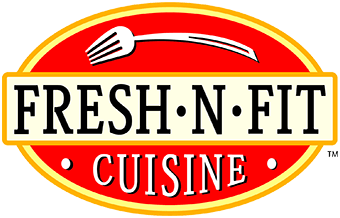
For years, the conventional belief that ruled professional and amateur athletic training programs was that consuming meat was the only way to build muscle. Today, we know a balanced vegetarian diet that includes plant-based protein assists muscular development…no steak required.Well-planned vegetarian diets that meet energy needs and contain a variety of plant-based protein foods, such as soy products, other legumes (beans), grains, nuts and seeds can provide adequate protein for athletes without the use of special foods or supplements. Consideration must be made for the type of vegetarian diet an athlete follows:
- Vegan – a vegetarian diet that excludes all animal products, such as meat, poultry, fish, eggs, milk, cheese and other dairy products, and which relies on plant protein only to meet protein needs.
- Lactovegetarian – a vegetarian diet that excludes meat, poultry, fish and eggs but includes dairy products, a source of protein.
- Lacto-ovo vegetarian – a vegetarian diet that excludes meat, poultry and fish but includes eggs and dairy products, sources of protein.
Athletes need to eat small amounts of protein throughout the day, to ensure this important nutrient is available for when their bodies need it most. Moreover, not every protein is equal. Eggs and dairy foods are considered a source of “complete protein” because they contain all nine of the essential amino acids the human body cannot synthesize on its own. On the other hand, plant-based proteins, with the exception of soy beans and some grains, are “incomplete proteins” because they lack one or more of these nine essential amino acids. Be sure to include a variety of protein sources throughout the day to provide all the essential amino acids.
Key is Protein Quality
“It’s protein quality that builds muscle and there are other options than meat,” says former Academy of Nutrition and Dietetics Spokesperson Roberta Anding, RD, director of sports nutrition and a clinical dietitian at Baylor College of Medicine and Texas Children’s Hospital, as well as a certified specialist in sports dietetics. The standard method of determining protein quality is the protein digestibility-corrected amino acid score (PDCAAS), which compares a protein’s amino acid quality based on both the amino acid requirements of humans and their ability to digest it.
Egg protein has a high PDCAAS since it contains the perfect balance of the nine essential amino acids and is easily digestible, making it an excellent protein source for vegetarians. Other vegetarian foods that have a high PDCAAS include dairy products such as low-fat yogurt and milk, and soy, including tofu, edamame, soy milk and soy yogurt.
Eat Protein at Every Meal
Anding recommends that vegetarian athletes looking to build muscle eat good quality protein at every meal. Here are some tips for building muscle without consuming meat:
- Eat five or six small meals per day that not only include protein, but also a variety of fruits, vegetables, whole grains, nuts, vegetable oils and plenty of water.
- More than half your calories each day should come from quality carbohydrates, which fuel your muscles.
- Fats are necessary for supplying energy to muscles during workouts. Good sources of fat include olive oil, almonds, walnuts, avocados and canola oil.
- Find a registered dietitian nutritionist who can work with you to create a personalized vegetarian eating plan that meets your individual needs.
If you’ve been wanting to try to incorporate more vegetarian meals into your diet, Fresh ‘N Fit Cuisine’s vegetarian menu is the perfect way to accomplish that. Our meals our lacto-ovo vegetarian, so you will still get your protein from dairy and eggs. Try one of our chef prepared gourmet meals and save 10% on your first order with promo code BLOG10.
